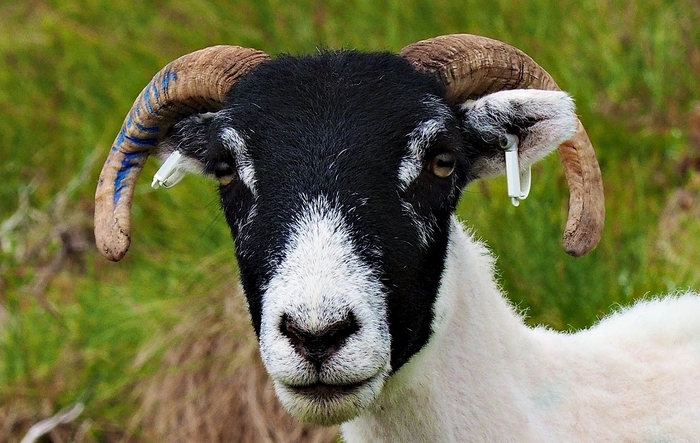A multinational project which aims to improve the uptake of digital technologies in sheep and goat farming will showcase new solutions at an online workshop next week.
The Technology and Digital Solutions for Sheep Farming event will highlight potential innovative technologies tailored to sheep farmers’ needs on feeding, grazing, reproduction, health and flock management.
It is being held as part of the Sm@RT (Small Ruminant Technologies) project, funded by the EU Horizon 2020 research programme, which brings together a network of researchers from the UK, France, Ireland, Norway, Estonia, Hungary, Italy and Israel, to improve awareness of newly available digital tools.
The first step in the project, led by Scotland’s Rural College in partnership with the Moredun Research Institute, was to carry out a survey to help researchers understand the main challenges faced by farmers and stakeholders, and their need for and interest in Precision Livestock Farming (PLF) tools and digital technologies.
This was followed by national workshops in September and October last year, to gather farmers’ needs in terms of tools and methods which could facilitate their farm working conditions.
More than 100 stakeholders, including farmers, advisers and researchers, then came together at an international conference on 12 October to discuss the needs of farmers in the different countries and share practical knowledge in a peer-to-peer knowledge exchange exercise.
Each country and production type had to propose solutions to the farmers’ needs in two other countries, alongside the five main themes of feeding/grazing, health/welfare, reproduction, flock/herd management and fattening and milking.
For the UK, the main needs and solutions identified revolved around issues of fencing, measuring grassland, early identification of unhealthy animals, identifying animals at a distance or automatically, and drafting lambs ready for slaughter.
SRUC’s Dr Claire Morgan-Davies, Project Coordinator for Sm@RT, said: “This bottom-up approach was well received by participants, and it was pleasing to see many innovative and PLF solutions being proposed by farmers for farmers.
“The next step in the project will be to formalise the solutions to the identified needs and propose guidelines and farmers’ testimonies on how to implement them on farms.”
Dr Fiona Kenyon, from the Moredun Research Institute, said: “This project uses a variety of methods to facilitate productive knowledge exchange, and practical information from the ‘digifarms’ and commercial farmers involved in the project will be helpful to farmers throughout the UK and Europe.”
The next national workshop in the UK will be held online on Thursday 10 February from 6.30-8.30pm.
For more information, please contact Ann McLaren at: ann.mclaren@sruc.ac.uk or Daniel Stout at: daniel.stout@sac.co.uk, or register on Eventbrite at: https://bit.ly/32O5VTn.


